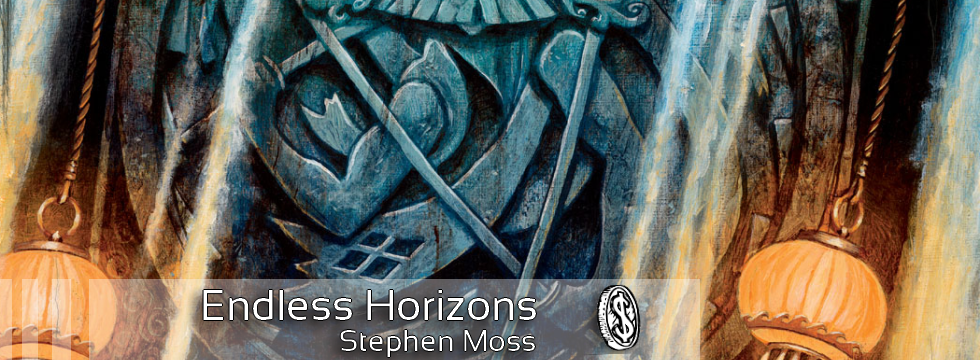Are you a Quiet Speculation member?
If not, now is a perfect time to join up! Our powerful tools, breaking-news analysis, and exclusive Discord channel will make sure you stay up to date and ahead of the curve.
It's been a very long time since I've written a business related piece, but this week seems like the right time to do one. Currently Magic is seeing another huge inflation in certain areas of the game, namely (as usual) in the property management area (lands). So why is it that people still buy in on the bubble? Surely by now you've looked at the prices, read the twitter feeds, the articles, looked at the current situation yourself and said "This can't possibly last", but why are some people still buying shocklands for hundreds of dollars per set? Grove of the Burnwillows being sold for $18-$21 on TCGplayer is an astronomical price! Yet, people buy them.
Why?
More importantly, how can we get people to do the same for the cards in our binder? That's what today's article is about.
How many of you do this when going to trade?
You: What do you value X card at?
Other dude: Oh, I was thinking $XX.XX
If you've been in that situation, I'm sorry to say you've already lost profits. There is a time and a place for it, but it is one of many tools to use in your trading work. Lets take a different approach to a similar situation, using a tactic normally known as Price Anchoring.
You: [card]Grove of the Burnwollows[/car]d is up to $20 with some vendors right now, but that price can't last. I'll sell it for $15, and we both get a good deal.
I can guarantee that this will net you more sales on cards than almost any other tactic. The key is to anchor in an honest, but higher, price first. Some people might see a $20 Grove and instantly buy it from most vendors, but a $15 one, that's a steal. At least, that's the image we're going for. Setting your anchor point puts an average price for the consumer in their minds, your offer must be lower than the anchor point, but still above the line you could sell it to the vendor for. Don't undersell yourself, it's just bad business.
Anchoring works in odd ways, and it is a double edged sword. Jace, the Mindsculptor is a good example. His price is tumbling, we all know that, but lets say you STILL have more to get rid of. Anchor the price, get more than you normally would (or should).
You: "Jace has been left to Legacy, but hes a staple there. Most of the shops still want $50 or more for him, but I'll let it go for $40."
You can of course use your own prices, those seen here are just an example.
There are a few anchor points in that statement; Legacy, staple, the shop price, and your price. Those are the four things that people are going to see.
Legacy is automatically related to a format that most people have been price locked out of due to rising costs.
Staple is also related by the brain to a card that will hold its value and go up in the long run.
The shops price sets the number that they figure will be what you want, but wait! You've shown you're better than most shops by offering it for $10 less, and the added convenience of instant delivery, right here and now.
There are times when you should ask them to name a price first, such as:
- When you don't have accurate knowledge of an items price. Of course, you shouldn't be making this mistake anyways, since you can check prices on your phone.
- When you want to judge the knowledge or accuracy of your trading partner. Some may say this is underhanded, but knowing the "competition" is half the game. Don't blindly rip people off, but get a good feeling for where they may under or over value cards.
MSRP and why you should really hate it
MSRP, or Manufacturer Suggested Retail Price is the first point of anchoring for a product. The company (in this case Wizards) sells their product for a set price. The store then sells boxes or individual packs for another price, usually at or above MSRP. The store has been anchored in at the point that Wizards sold them the product at and in turn, the store then sells the product at a higher rate in order to cover day to day expenses. This is all well and good, except it's not. We see this often in online shopping. I know that the headphones I just bought don't normally cost $119, but that's what the "original MSRP" was set at, and my favorite online store had them marked down to $89, and I instantly thought I was getting a great deal at 25% off. Yeah, I bought straight into the anchoring.
The same thing happens when it comes to specialty products that Wizards puts out. Duel decks, all foil decks, foil boosters, From the Vault sets, whatever, they all have some form of anchoring already attached to them. Once you can identify these price anchors and how they are used, you can avoid it, and then turn it to your advantage.
This weekend is Pro Tour Philly, and I'm interested to see where it goes for the Modern format. A lot of calls have been made on almost any site dealing with Magic, be it trading or strategy, and it will be interesting to see where the cards fall at the end of the week. I'll be examining some of the calls that I made over the past month, and seeing where things ended up.
Till next week,
Stephen Moss




